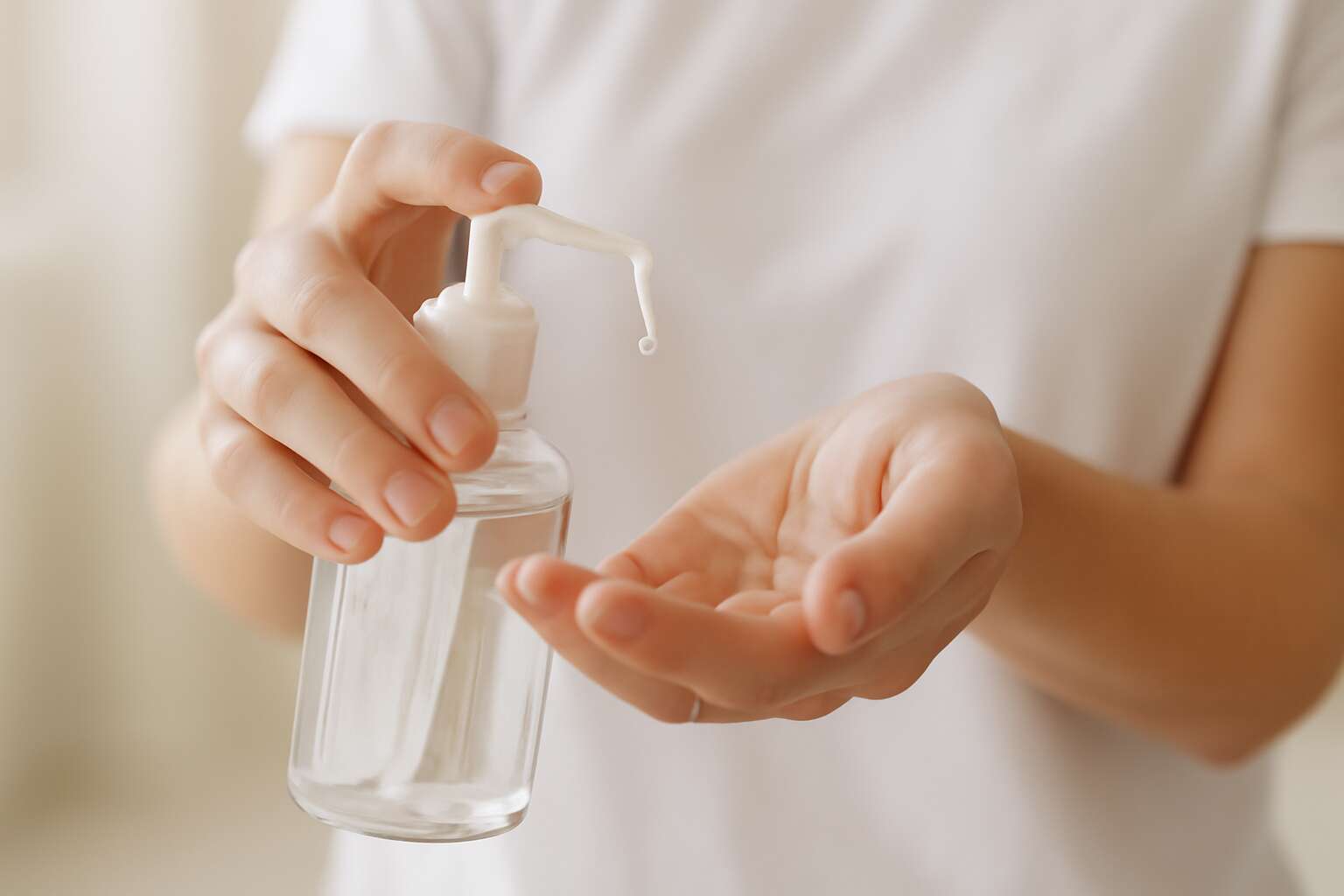Understanding Hand Sanitizers
What Are Hand Sanitizers?
In the bustling corridors of daily life, hand sanitizers have become an almost magical shield against unseen pathogens, transforming mundane hygiene into an almost ritualistic act. But beneath their shimmering surface lies a question that lingers like a shadow in the corners of our minds: are hand sanitizers bad for you? Recent studies reveal that while they are effective in reducing germs, their widespread use raises concerns about potential health impacts. These liquid elixirs often contain alcohol, which, in high concentrations, can strip the skin of its natural oils, leading to dryness and irritation. For those wondering about the safety of these sanitizers, it’s essential to understand the ingredients and their effects on skin health.
Hand sanitizers are typically composed of alcohol, such as ethanol or isopropanol, combined with other ingredients to enhance fragrance and texture. They work by rapidly destroying bacteria and viruses upon contact, offering a convenient alternative when soap and water are unavailable. However, frequent use of such products can lead to skin damage, especially if the sanitizer contains harsh chemicals or added fragrances. Some formulations also include antimicrobial agents, which, over time, may contribute to the development of resistant germs. For those asking, “are hand sanitizers bad for you?” the answer hinges on proper use and awareness of potential side effects. A balanced approach ensures germ protection without compromising skin integrity.
Types of Hand Sanitizers
Understanding the different types of hand sanitizers is essential in deciphering whether these seemingly innocuous products are truly safe or potentially harmful. There are primarily two categories: alcohol-based and non-alcohol-based sanitizers. Alcohol-based variants typically contain ethanol or isopropanol, which are highly effective at eliminating germs but can also be harsh on the skin. Non-alcohol options often use ingredients like benzalkonium chloride or other antimicrobial agents, which may linger longer on the skin but raise questions about their long-term safety.
Both types serve specific purposes depending on the setting and skin sensitivity. For those wondering, “are hand sanitizers bad for you,” it’s crucial to recognize that while alcohol-based sanitizers are excellent for quick germ eradication, their frequent use might lead to dryness or irritation. Conversely, non-alcohol formulations might pose risks related to antimicrobial resistance. The choice between these types can influence how safe they are for your skin over time, especially with repeated application during busy days.
Potential Health Risks of Hand Sanitizers
Skin Irritation and Allergic Reactions
While hand sanitizers have become a staple in our daily routine, concerns about their safety are often overlooked. Recent studies have shown that frequent use of hand sanitizers can lead to skin irritation, especially among those with sensitive skin. The alcohol content, which is necessary to kill germs, can strip away natural oils, leaving the skin dry, cracked, and vulnerable to infection. But it’s not just dryness—some individuals develop allergic reactions ranging from redness and itching to more severe dermatitis.
It’s important to recognize that not all hand sanitizers are created equal. Some contain added fragrances or preservatives that can trigger allergic responses. For instance, certain alcohol-based variants may cause contact dermatitis, making skin conditions worse rather than better. If you notice persistent irritation or allergic reactions, it might be worth reconsidering your usage or switching to gentler alternatives.
- Redness
- Itching
- Swelling
- Cracking or peeling skin
Understanding the potential health risks of hand sanitizers is crucial, especially as their use becomes more ubiquitous. Are hand sanitizers bad for you? For some, the answer is yes—particularly when it leads to skin irritation or allergic reactions that compromise skin integrity and overall health.
Alcohol Absorption and Systemic Effects
While the alcohol in hand sanitizers is celebrated for its germ-killing prowess, an often-overlooked concern is the potential systemic absorption of alcohol through the skin. Yes, that seemingly innocuous gel might be sneaking into your bloodstream more than you’d imagine. Studies suggest that frequent use of hand sanitizers can lead to alcohol entering the body in small yet cumulative quantities, especially when applied in large amounts or on broken skin. This raises the question: are hand sanitizers bad for you in the long run?
In some cases, the alcohol absorption can cause more than just skin dryness; it may influence your body’s overall alcohol levels, which is particularly relevant for individuals with liver conditions or those sensitive to alcohol. While rare, there are reports of systemic effects such as dizziness or mild intoxication in heavy users. Therefore, it’s crucial to consider the broader health implications, especially when hand sanitizers are used repeatedly throughout the day. The next time you reach for that bottle, ask yourself—are hand sanitizers bad for you? The answer may be more nuanced than it first appears.
Impact on Skin Microbiome
In the shadowed corridors of health and hygiene, a silent threat lurks—one that often escapes notice amidst the antiseptic glow of hand sanitizers. While their germ-fighting prowess is lauded, an unsettling question persists: are hand sanitizers bad for you? The impact extends beyond mere skin irritation; it subtly alters the delicate balance of your skin microbiome, the unseen ecosystem that guards your health. When the natural flora is disturbed, vulnerabilities multiply, paving the way for opportunistic pathogens to settle in.
This microbial upheaval can have long-term repercussions, weakening your skin’s natural defenses. Frequent use of hand sanitizers—especially those rich in alcohol—may inadvertently diminish beneficial bacteria, leaving your skin exposed and more susceptible to infections. The damage is insidious, often unnoticed until discomfort or imbalance manifests. As the dark tide of microbial disruption deepens, the question becomes ever more urgent: are hand sanitizers bad for you? The answer, shrouded in complexity, beckons us to look beyond the surface and question what we truly sacrifice in the name of cleanliness.
Risk of Ingesting Hand Sanitizer
Amidst the relentless pursuit of cleanliness, a hidden danger lurks—particularly when it comes to the potential health risks of hand sanitizers. While they are celebrated for their convenience and effectiveness, questions linger: are hand sanitizers bad for you? Beyond skin irritation, the concern extends to the inadvertent ingestion of these potent formulas. Accidental swallowing, especially by children, can pose serious health threats, as many hand sanitizers contain alcohol concentrations comparable to spirits.
Ingesting even small amounts can lead to alcohol poisoning, which presents symptoms like confusion, vomiting, and in severe cases, respiratory distress. The risk is amplified with frequent use, as lingering residues on hands can be unknowingly transferred to the mouth or food. To illustrate, consider this:
- Children are particularly vulnerable to accidental ingestion.
- Alcohol-based sanitizers can cause intoxication in larger quantities.
- Non-alcoholic options may reduce this risk but are not always as effective against germs.
Ultimately, the question remains—are hand sanitizers bad for you? The answer hinges on awareness and cautious use, especially in environments where children are present. While they serve a vital role in hygiene, the potential for systemic effects from ingestion underscores the importance of responsible application. The silent peril of these formulations reminds us that even in our quest for cleanliness, vigilance must be our guiding star.
Chemical Concerns in Hand Sanitizers
Common Chemical Ingredients
Many are surprised to learn that some common chemical ingredients in hand sanitizers might pose health risks. While their quick germ-killing power is undeniable, the chemicals used can sometimes do more harm than good. Concerns about “are hand sanitizers bad for you” often center on these substances’ potential long-term effects.
One of the main culprits is **denatured alcohol**, which can cause skin dryness and irritation with frequent use. But it’s not just alcohol; other ingredients like **triclosan** and certain fragrances can also trigger allergic reactions and disrupt skin health. These chemicals are often added to improve scent or stability but may have unintended consequences.
Common chemical ingredients in hand sanitizers include:
- Alcohol (ethanol or isopropanol)
- Triclosan or triclocarban
- Fragrances and dyes
Understanding the potential chemical concerns in hand sanitizers helps clarify whether they are truly safe for regular use and highlights the importance of scrutinizing product labels to address the question: are hand sanitizers bad for you?
Potentially Harmful Additives
Hidden within the sleek bottles of hand sanitizer, a silent controversy brews. Recent studies reveal that certain chemical additives may pose unforeseen health risks, challenging the assumption that all sanitizers are entirely safe. While their germ-fighting prowess is undeniable, the long-term effects of these chemicals remain shrouded in mystery.
Some ingredients, like **triclosan** and synthetic fragrances, have been linked to allergic reactions and hormonal disruptions. These substances are often added to improve scent or stability but could inadvertently undermine skin health or contribute to antimicrobial resistance. For those asking, “are hand sanitizers bad for you,” understanding the chemical composition is crucial.
Particularly concerning are additives such as:
- Preservatives like triclosan
- Artificial fragrances and dyes
- Denatured alcohol, which can cause skin dryness and irritation with frequent use
These components may seem innocuous, yet their cumulative impact raises questions about the safety of regular hand sanitizer usage. Scrutinizing labels becomes essential—what exactly are we exposing our skin and body to? The answer might surprise you, especially in a landscape where personal hygiene is paramount but chemical exposure remains under the radar.
Regulatory Standards and Safety
Regulatory standards for hand sanitizers are often seen as a safeguard, but recent scrutiny suggests they may not be enough. While authorities like the South African Bureau of Standards (SABS) set guidelines, the complexity of chemical formulations sometimes slips through the cracks. The issue lies in the fact that many ingredients, though approved, can still pose risks when used repeatedly over time.
Safety concerns escalate when considering the cumulative effects of certain chemicals. For example, preservatives like triclosan and artificial fragrances are frequently present in sanitizers, yet their long-term impact on health remains questionable. This raises a critical question: are hand sanitizers bad for you? The answer becomes murkier when regulatory oversight doesn’t fully address potential systemic effects.
In South Africa, as in other regions, the focus should shift from mere compliance to comprehensive safety evaluations. Only then can consumers truly gauge what they’re exposing their skin and bodies to. It’s vital to stay vigilant—labels may not always tell the full story. The lurking dangers of chemical additives demand our scrutiny, especially when the line between hygiene and health risks blurs.
When Hand Sanitizers May Not Be a Safe Alternative
Not Effective Against Certain Pathogens
While hand sanitizers have become a staple in our daily routines, they are not always a safe alternative in every situation. Certain pathogens, especially those protected by resilient outer layers like spores or some types of viruses, can easily evade the disinfecting power of alcohol-based hand sanitizers. This means relying solely on hand sanitizer might give a false sense of security when facing tougher germs.
Moreover, hand sanitizers are not effective against all types of bacteria and viruses. For instance, they do little to eliminate norovirus or Clostridium difficile, which require more rigorous cleaning methods. In some cases, frequent use of hand sanitizer can even contribute to the development of resistant strains, making infections harder to combat in the long run.
- Resistant pathogens like spores
- Non-enveloped viruses such as norovirus
- Germs embedded in dirt or organic material
Understanding these limitations is vital. It raises the question: are hand sanitizers bad for you if they are used as the only line of defense? The answer isn’t straightforward, but recognizing when they might not be effective is crucial for maintaining true hygiene and health safety in our communities. Especially in environments where exposure to resistant microorganisms is high, relying solely on hand sanitizer may do more harm than good.
Limitations in Germ-Killing Capability
In the relentless pursuit of hygiene, many people wonder: are hand sanitizers bad for you? While their convenience is undeniable, their germ-killing prowess has notable limitations. Certain pathogens, especially resilient spores and some non-enveloped viruses like norovirus, can easily slip past the disinfectant barrier. Relying solely on hand sanitizers in high-risk environments might give a false sense of security, leaving you vulnerable to more formidable microbes.
It’s important to recognize that not all germs are vulnerable to alcohol-based solutions. Germs embedded in dirt or organic material often remain untouched by hand sanitizers, emphasizing the importance of thorough handwashing in some situations. In high-exposure settings—think healthcare facilities or food preparation areas—overdependence on these quick fixes can do more harm than good, potentially fostering resistant strains of bacteria and viruses. While a handy tool, hand sanitizers are not a one-size-fits-all shield against every microbial threat.
Overreliance and Poor Hand Hygiene Practices
While hand sanitizers are often seen as quick, convenient solutions to maintain hygiene, they are not always a safe alternative—especially when overused or relied upon exclusively. In many settings, such as busy workplaces or public spaces, people tend to overlook the importance of proper handwashing. This can lead to a false sense of security and increase the risk of spreading stubborn pathogens.
Overdependence on hand sanitizers, without integrating good hand hygiene practices, can have unintended consequences. For instance, frequent use may contribute to the development of resistant strains of bacteria and viruses, making infections harder to eliminate. It’s essential to remember that hand sanitizers do not replace the thorough cleaning provided by soap and water. When hands are visibly dirty or greasy, relying on hand sanitizer doesn’t effectively remove dirt or organic material, leaving behind potential microbes.
Safer Alternatives to Hand Sanitizer
Proper Hand Washing Techniques
In the realm of modern hygiene, the question lingers like a shadow: are hand sanitizers bad for you? While they seem like a quick fix—conjuring images of sanitized hands in a matter of seconds—their magic isn’t without potential pitfalls. Safer alternatives, such as thorough hand washing, often remain overlooked but are rooted in centuries of proven effectiveness. Proper hand washing techniques, when executed with care, can banish pathogens without the collateral damage caused by chemical-laden sanitizers.
Imagine a ritual where water and soap become your allies—vigorously scrubbing for at least twenty seconds, making sure to reach every crevice. This ancient practice not only eliminates germs but also preserves your skin’s natural barrier. For those seeking an extra layer of protection, consider natural options like herbal-infused soaps or alcohol-based solutions with minimal additives. Ultimately, embracing these techniques can safeguard your health without the hidden risks that come with relying solely on hand sanitizers. After all, the true magic lies in understanding how to keep our hands clean, naturally and effectively.
Using Soap and Water Effectively
While quick and convenient, hand sanitizers are not always the best choice for maintaining hand hygiene. Many people overlook the power of traditional hand washing with soap and water, which remains one of the most effective methods to eliminate germs. Proper technique involves scrubbing all surfaces of your hands for at least twenty seconds, ensuring you reach between fingers, under nails, and around the thumbs. This process physically removes pathogens and preserves your skin’s natural barrier better than chemical solutions.
For safer alternatives, using soap and water consistently is key. Natural options like herbal-infused soaps can enhance the experience without harmful additives. If you prefer quick solutions, consider alcohol-based hand washes with minimal chemicals. Remember, although hand sanitizers are popular, they might be are hand sanitizers bad for you in the long run, especially if used excessively or with harsh ingredients. When in doubt, sticking to effective hand washing techniques is your best defense against germs without risking skin health or systemic effects.
Natural Hand Hygiene Options
In the quest for pristine hands, many jump straight to hand sanitizers, assuming they’re the silver bullet. But recent studies suggest that relying solely on these quick fixes might not be the wisest choice—are hand sanitizers bad for you in the long run? The answer isn’t black and white, but the potential pitfalls are worth pondering. Fortunately, nature offers a compelling alternative: natural hand hygiene options that are gentle on your skin and equally effective.
Herbal-infused soaps, crafted from botanical extracts and free from harsh chemicals, provide a soothing yet potent way to eliminate germs. They nourish your skin while doing their job, unlike some commercial hand sanitizers that strip away moisture and disturb the delicate skin microbiome. For those in a rush, alcohol-based hand washes with minimal additives can serve as a more balanced solution. Incorporating these into your routine ensures you maintain hand hygiene without the risk of long-term skin irritation or systemic absorption issues associated with overusing traditional hand sanitizers.
- Opt for natural soaps with herbal infusions.
- Choose alcohol-based hand washes with minimal chemicals.
Remember, a little soap and water, used properly, often outperforms the quick-drying, chemical-laden hand sanitizers that flood the market. So, when pondering whether are hand sanitizers bad for you, consider these natural alternatives that honor both your health and your skin’s integrity. After all, true cleanliness doesn’t have to come at the expense of your well-being.
Expert Recommendations and Best Practices
Guidelines from Health Authorities
Health authorities are increasingly scrutinizing the widespread use of hand sanitizers, emphasizing the importance of balanced hygiene practices. Experts recommend adhering to specific guidelines to minimize potential health risks associated with frequent sanitizer use. According to the World Health Organization, hand hygiene should primarily rely on thorough hand washing with soap and water whenever possible, reserving hand sanitizers for situations where water isn’t available. This approach helps mitigate concerns about whether hand sanitizers are bad for you, especially considering their chemical composition.
For those questioning if hand sanitizers are bad for you, authorities advise following best practices that include using products with at least 60% alcohol content, avoiding excessive application, and steering clear of products containing harmful additives. The South African Health Department emphasizes that overuse can lead to skin irritation and potential disruption of the skin’s natural microbiome. In some cases, improper or frequent use may even contribute to systemic absorption of chemicals, raising further questions about long-term safety. Ultimately, informed use aligned with official guidelines can help consumers navigate the fine line between effective hygiene and potential health risks.
How to Choose Safe Hand Sanitizers
When selecting a hand sanitizer that aligns with health and safety standards, expert advice becomes your guiding star. The key to ensuring your skin’s well-being while maintaining hygiene is choosing products that meet strict criteria, especially considering concerns like are hand sanitizers bad for you. A reputable hand sanitizer should contain at least 60% alcohol, which effectively kills germs without unnecessarily exposing you to harmful chemicals.
To navigate this delicate balance, consider these best practices:
- Always check the ingredient list for potentially harmful additives or fragrances that might irritate your skin or disturb your microbiome.
- Opt for brands that adhere to regulatory standards set by health authorities, ensuring safety and efficacy.
- Apply hand sanitizer sparingly—enough to cover all surfaces of your hands—avoiding overuse that can lead to skin dryness or systemic absorption of chemicals.
In the quest for safe hand hygiene, being a conscious consumer means understanding what makes a sanitizer safe and recognizing the importance of moderation. When in doubt, natural alternatives or thorough hand washing with soap and water can often be your most reliable allies against germs, reducing concerns about are hand sanitizers bad for you.
Tips for Safe Use
Expert recommendations emphasize that moderation is key when using hand sanitizers, especially given concerns about whether they are bad for you. Health authorities advise applying sanitizer only when soap and water aren’t accessible, as overuse can cause skin dryness and disrupt your skin’s natural microbiome. It’s essential to select products with at least 60% alcohol, which effectively kills germs without exposing you to unnecessary chemicals.
To ensure safe use, follow these best practices:
- Use hand sanitizer sparingly—just enough to cover all surfaces of your hands.
- Always check the ingredient list for potentially harmful additives or fragrances that could irritate sensitive skin.
- Complement sanitizer use with thorough hand washing whenever possible, especially after touching shared surfaces.
Being a conscious consumer means understanding the delicate balance between effective germ control and avoiding potential health risks. Natural alternatives, such as soap and water, remain reliable options that reduce concerns about whether hand sanitizers are bad for you. Remember, proper hygiene practices combined with informed product choices are your best defense against germs and chemical exposure alike!




0 Comments